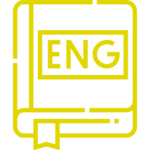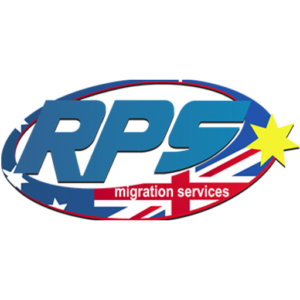Our Services
Physiotherapist

Physiotherapists play a crucial role in the Australian healthcare system, contributing to the overall health and well-being of individuals across various settings.
Here are some key roles and responsibilities of physiotherapists in Australia:
Physiotherapists assess patients’ physical conditions, movement patterns, and functional abilities to diagnose musculoskeletal, neurological, or other physical impairments or conditions.
Based on their assessment findings, physiotherapists develop personalized treatment plans tailored to each patient’s needs. They use a variety of techniques such as exercise therapy, manual therapy (e.g., joint mobilization), electrotherapy (e.g., ultrasound), and other modalities to help improve mobility, reduce pain, restore function, and promote overall physical well-being.
Physiotherapists play a significant role in rehabilitation programs for individuals recovering from injuries or surgeries. They provide guidance on exercises, stretches, mobility aids (e.g., crutches), assistive devices (e.g., braces), and techniques aimed at restoring strength, flexibility, balance coordination,and functional independence.
Physiotherapists employ various techniques such as manual therapy,massage therapy,taping,and therapeutic exercises to manage acute or chronic pain conditions effectively.They also educate patients about self-management strategies for pain relief.
Physiotherapists educate individuals about maintaining good posture,body mechanics,and ergonomics.They provide advice on injury prevention,strategies for maintaining an active lifestyle,and promoting overall health through exercise programs tailored to individual needs.
Physiotherapists specialize in managing musculoskeletal conditions such as back pain,sports injuries,joint disorders(arthritis),and postural issues.They offer treatments that aim at reducing symptoms,rehabilitating injured tissues,and improving function.
In some cases, physiotherapists work with patients who have cardiorespiratory conditions such as chronic obstructive pulmonary disease (COPD), asthma, or cardiovascular diseases. They provide exercise programs and breathing techniques to improve lung capacity, endurance, and overall cardiovascular health.
Physiotherapists play a vital role in the care of older adults by addressing age-related issues such as balance problems,falls prevention,and mobility limitations.They help maintain independence,functional abilities,and quality of life for elderly individuals.
Physiotherapists work with athletes to prevent injuries,optimize performance,and facilitate rehabilitation after sports-related injuries.They may provide advice on training techniques,sport-specific exercises,and injury prevention strategies.
Physiotherapists often work collaboratively with other healthcare professionals such as doctors,nurses,occupational therapists,dietitians,and psychologists to provide comprehensive care for patients.They contribute their expertise in physical rehabilitation and functional improvement within multidisciplinary teams.
It’s important to note that the specific roles and responsibilities of physiotherapists may vary depending on their specialization, practice setting (e.g., hospitals,private clinics,sports facilities),and patient population they serve.However,the overall goal remains consistent -to optimize physical function,promote well-being,and enhance the quality of life for individuals across various stages of life and health conditions.
Contributions of Overseas-Trained Physiotherapists in Australia
Overseas-trained physiotherapists make valuable contributions to the Australian healthcare system, bringing diverse skills, knowledge, and experiences that enrich the profession. Here are some of the contributions they make:

Addressing Workforce Shortages
Overseas-trained physiotherapists help address workforce shortages in certain areas or specialties within Australia's healthcare system. They fill gaps in regions where there may be a shortage of locally trained physiotherapists or in specialized fields where expertise is needed.

Cultural Diversity and Language Skills
Physiotherapists from overseas bring cultural diversity to the profession, allowing them to better understand and cater to the needs of multicultural communities within Australia. Their language skills can facilitate effective communication with patients who may have limited English proficiency.

Knowledge Exchange
Overseas-trained physiotherapists bring different perspectives, techniques, and approaches learned from their training and experience in other countries. This knowledge exchange can enhance clinical practice by introducing new ideas, evidence-based practices, and innovative treatment methods.

Specialist Expertise
Some overseas-trained physiotherapists possess specialized expertise or advanced qualifications in specific areas such as sports rehabilitation, pain management, musculoskeletal care, and neurological rehabilitation. They contribute their specialized skills to improve patient outcomes and expand the range of services available within Australian healthcare settings.

Cultural Competence
Overseas-trained physiotherapists often have experience working with diverse patient populations with varying cultural backgrounds. This enables them to provide culturally sensitive care, taking into account patients' beliefs, cultural practices, and individual preferences. They contribute towards promoting inclusivity, respect, and patient-centered care.

Research Collaboration
Many overseas-trained physiotherapists engage in research activities, collaborating with local researchers and contributing to advancements in evidence-based practice. They bring their unique research interests, perspectives, and methodologies that can broaden research horizons within the Australian physiotherapy community.

Professional Development
Overseas-trained physiotherapists often participate in ongoing professional development activities, attending conferences, workshops, and courses to update their knowledge and skills. They contribute to the continuous learning culture within the profession and share their experiences with local colleagues.

Multidisciplinary Collaboration
Physiotherapy is often integrated into multidisciplinary healthcare teams. Overseas-trained physiotherapists collaborate with other healthcare professionals such as doctors, nurses, occupational therapists, and speech therapists to provide comprehensive care for patients. They bring their unique perspectives and expertise to these collaborative efforts.
It’s important to note that overseas-trained physiotherapists must meet specific requirements set by the Australian Physiotherapy Council (APC) and obtain registration with the Australian Health Practitioner Regulation Agency (AHPRA) before practicing as a physiotherapist in Australia. These requirements ensure that overseas-trained professionals meet Australian standards of competency and safety.
Overall, overseas-trained physiotherapists contribute significantly to the diversity, expertise, and quality of care within Australia’s healthcare system. Their contributions help meet patient needs, demonstrate cultural competence, and enhance the overall effectiveness of physiotherapy services across various settings.
Registration of Physiotherapist
The registration process for
overseas-trained physiotherapists in Australia involves several steps to ensure
that they meet the required standards of competency and safety. Here is an
overview of the process:

1. Australian Physiotherapy Council (APC) Assessment
The first step is to have your qualifications and skills assessed by the Australian Physiotherapy Council (APC). The APC assesses whether your education, training, and experience are equivalent to the standards set for physiotherapists in Australia.

2. English Language Proficiency
Overseas-trained physiotherapists must demonstrate English language proficiency by providing evidence of achieving satisfactory scores in approved English language tests such as IELTS or OET.

3. Provisional Registration
Once you have successfully completed the APC assessment and met the English language requirements, you can apply for provisional registration with the Australian Health Practitioner Regulation Agency (AHPRA). This allows you to work under supervision while completing any additional requirements.

4. Supervised Practice
Depending on your assessment outcome, you may be required to complete a period of supervised practice under an approved supervisor in Australia. This allows you to gain local experience and familiarize yourself with Australian healthcare practices.

5. National Physiotherapy Exam
Overseas-trained physiotherapists are required to pass a written examination administered by the APC called the National Physiotherapy Exam (NPE). The exam assesses clinical reasoning, professional practice, and ethical decision-making skills.

6. Full Registration
After successfully completing supervised practice and passing the NPE, you can apply for full registration with AHPRA as a qualified physiotherapist in Australia.
It’s important to note that specific requirements may vary depending on individual circumstances such as country of origin, educational background, and previous work experience. It’s recommended that overseas-trained physiotherapists refer directly to relevant regulatory bodies like APC, AHPRA, and their respective websites for detailed information on the registration process.
Additionally, it’s advisable to seek guidance from professional migration agents or consultants who specialize in healthcare professions to ensure a smooth and successful registration process. They can provide personalized advice, assist with document preparation, and guide you through the necessary steps to meet the requirements for registration as a physiotherapist in Australia.
National Physiotherapy Exam (NPE) in Australia
The National Physiotherapy Exam (NPE) in Australia is a written examination administered by the Australian Physiotherapy Council (APC). It is a requirement for overseas-trained physiotherapists who are seeking full registration to practice as physiotherapists in Australia. Here are some key points about the NPE:
Purpose
The NPE aims to assess the clinical reasoning, professional competence, and ethical decision-making skills of overseas-trained physiotherapists. It ensures that they meet the standards required for safe and effective practice in Australia.
Format
The NPE is a computer-based examination consisting of multiple-choice questions (MCQs) and extended matching questions (EMQs). The exam covers various areas of physiotherapy practice, including musculoskeletal, neurological, cardiorespiratory, pediatric, geriatric care, and other relevant domains.
Content
The exam assesses candidates’ knowledge across different aspects of physiotherapy practice such as assessment techniques, treatment interventions, rehabilitation principles, evidence-based practice, and professional ethics. It may also include questions related to Australian healthcare policies, laws, and regulations.
Preparation
Candidates are encouraged to prepare thoroughly for the NPE by reviewing their knowledge across all relevant areas of physiotherapy. They should familiarize themselves with Australian guidelines and best practices, referencing resources such as textbooks, journal articles, guidelines from professional bodies, and previous exam papers if available. Preparatory courses or study groups can also be beneficial in helping candidates focus their preparation efforts.
Examination Dates and Locations
The APC conducts multiple sittings of the NPE throughout each year at designated locations within Australia. Candidates can check the APC website or contact them directly for information on upcoming exam dates, application deadlines, and available test centers.
Results and Outcome
After completing the NPE, candidates receive their results indicating whether they have passed or failed. The passing score is determined based on the performance of candidates relative to a predetermined standard set by the APC.
Successful completion of the NPE, along with meeting other requirements such as English language proficiency and any additional supervised practice or clinical training deemed necessary, is necessary for obtaining full registration as a physiotherapist in Australia.
It’s important to note that the NPE is just one component of the overall assessment process for overseas-trained physiotherapists seeking registration in Australia. Candidates should refer to the Australian Physiotherapy Council (APC) website or contact them directly for detailed information on exam content, format, application procedures, and any updates regarding the examination process.
Seeking guidance from professional migration agents or consultants who specialize in healthcare professions can also be beneficial in navigating through the registration process and preparing effectively for exams like the NPE.
RPS Advantage
Engaging RPS Migration Services can offer several advantages for physiotherapists seeking assistance with their registration process in Australia. Here are some benefits of using their services:
RPS Migration Services specializes in providing migration and registration assistance to healthcare professionals, including physiotherapists. They have extensive knowledge and experience in navigating the specific requirements, processes, and challenges involved in obtaining registration as a physiotherapist in Australia.
RPS Migration Services can provide personalized guidance based on your individual circumstances. They will assess your qualifications, work experience, and any additional requirements you may need to fulfill. They can help you understand the specific steps involved in the registration process and provide clear instructions on how to meet each requirement.
The registration process often involves gathering and preparing various documents such as educational transcripts, certificates of professional standing, relevant work experience evidence, and English language proficiency results. RPS Migration Services can assist you with compiling these documents accurately, ensuring that they meet the required standards.
RPS Migration Services can guide you through the application process for both assessment by the Australian Physiotherapy Council (APC)and registration with the Australian Health Practitioner Regulation Agency (AHPRA).They will help you complete application forms correctly, address any queries or concerns, and ensure that all necessary supporting documentation is included.
International physiotherapists are often required to pass examinations such as the National Physiotherapy Exam (NPE). RPS Migration Services can provide guidance on exam preparation strategies, suggest relevant study materials, and offer tips on how to approach different types of exam questions. This support increases your chances of success when sitting for these exams.
RPS Migration Services acts as an intermediary between you and regulatory bodies like APC, AHPRA, and other relevant organizations. They communicate directly with these bodies on your behalf, ensuring that all necessary information is provided, and any queries or concerns are addressed promptly. This can save you time and effort in dealing with administrative tasks and streamline the communication process.
Migration rules, registration requirements, and processes can change over time. RPS Migration Services stays up to date with the latest developments in migration laws, policies, and registration procedures. They will inform you about any changes that may affect your application or registration status, ensuring that you remain compliant throughout the process.
RPS Migration Services understands that the registration process can be complex, stressful, and overwhelming. They provide supportive guidance throughout the entire journey, offering reassurance, answering your questions, and providing regular updates on your application progress. This support helps alleviate stress and gives you peace of mind during this important phase of your career.
It’s important to note that while engaging RPS Migration Services can offer valuable assistance,it’s always advisable to conduct thorough research,refer directly to official regulatory bodies’ websites for accurate information,and consider multiple sources of advice when making decisions regarding migration and registration processes.
